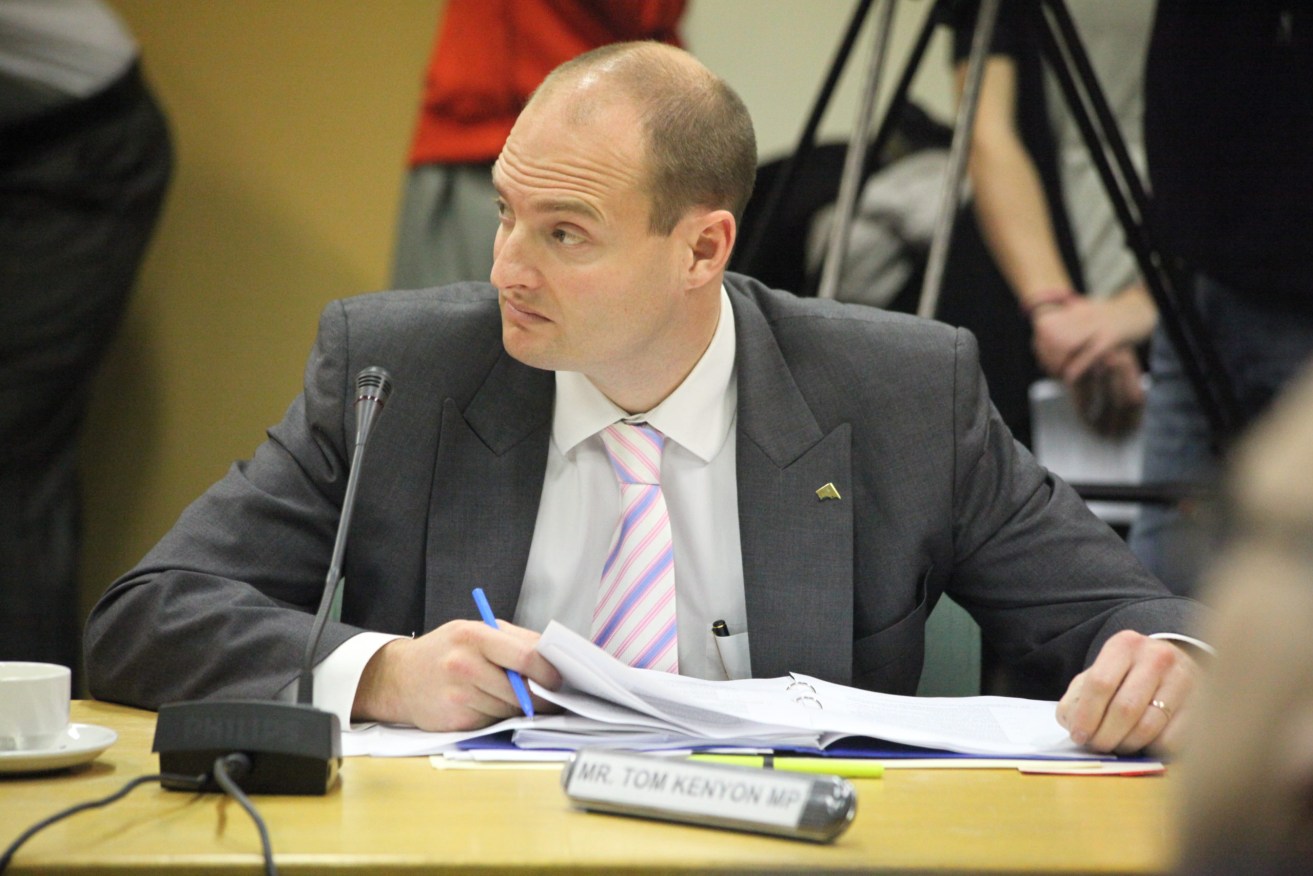Labor Minister Tom Kenyon used Parliament House this week to host a trail-blazing US ‘pro-life’ legislator, telling the audience “with any luck we will be following (her) successes here in South Australia at some point”.
The visiting legislator, Bette Grande of North Dakota, is in the vanguard of US law-makers who have succeeded in limiting abortion in many US states in the past decade.
Grande (pronounced “Grandee”), a Republican, was introduced warmly by Kenyon and was engaged positively in the question-and-answer session by Family First MP Dennis Hood.
Kenyon said: “I’m very happy to be hosting you tonight at Parliament House because if ever we are going to achieve something on abortion then this is the place it will happen”.
Grande, a strong Christian who has served for 17 years in the North Dakota state legislature, has been at the forefront of US moves to limit abortion, chief among them banning abortions of foetuses observed to have a heart beat – usually by about six weeks gestation.
“Once a heart beat is present an abortion cannot be performed,” she told an audience of about 70 in the Balcony Room of Parliament House as a guest of Right to Life Australia.
“My heart beat is my determining factor and it has been our determining (health) factor for a long time. If that is the case why is it not the determining factor in the womb?”
Among North Dakota’s other legislative moves were a ban on abortions of foetuses with genetic abnormalities such as Down’s Syndrome, and a ban on sex-selection abortions.
But it was the host and the audience which told the story for South Australia.
Kenyon has been a “pro-life” Labor MP since entering parliament in 2006. While not the only pro-life Labor MP in Parliament (others in the Labor Unity (Right) faction among them) he has marked out a public position on the issue distinct from his factional colleagues and a world away from the Left of the party.
He has written against the abortion drug RU-486 for its medical side effects and this week called for a more forceful agenda to be set in South Australia on limiting the number of abortions.
“There are plenty of people who come here to discuss the other (pro-choice) side – so we shouldn’t be afraid to put our point of view on these sorts of things,” he told the audience.
Later asked by InDaily whether he envisaged a change in Labor policy in relation to abortion, he said: “Life matters are always a conscience vote in the Labor Party”.
”My position on abortion is both long-standing and well known. I think there are too many abortions and I would like to see less.”
Approximately one in five foetuses were terminated in South Australia each year, according to statistics released each year by the State Government’s Abortion Reporting Committee annual reports. South Australia was believed to be the only state which released detailed abortion statistics each year, although they are not readily accessible and the 2011 figures are yet to emerge.
According to the report for the year 2010, 5,048 foetuses were terminated.
This figure was precisely 20 per cent of total reported pregnancies in that year, 1 per cent down on the previous year.
The report provides some fine-grained detail: more than half (52 per cent) of the foetuses conceived by teenagers were terminated. There were 66 abortions of foetuses with genetic abnormalities (usually Down’s Syndrome) and 89 foetuses were aborted beyond 20-weeks gestation –roughly half of these for “foetal reasons” such as major abnormalities and half due to the “mental health of the mother”. Of the women who had abortions that year, 89 had had four or more previous abortions.
In the Balcony Room on Wednesday night the audience was representative of the state’s aging and largely Christian-based pro-life lobby. There appeared to be fewer than five attendees aged in their 20s or 30s – and of those two were clearly the teenage children of older audience members.
The mood in the room was one of determination mixed with waning vitality after a long and losing battle since abortion was legally permitted in this state in 1970. From then until 2000 the abortion rate tripled. It has since fallen back to be about 2.5 times what it was in 1970.
More broadly, the likelihood of legal restrictions being placed on access to abortion in South Australia was very small. It is not on the mainstream political agenda.
This fact made the presentation by Grande a shot in the arm for many in the audience at Parliament House.
But she said her recent successes in limiting abortion in North Dakota – a state with a large majority pro-life population – only came after 17 years of widespread public education and activism to address the “hearts and minds of the people”.





